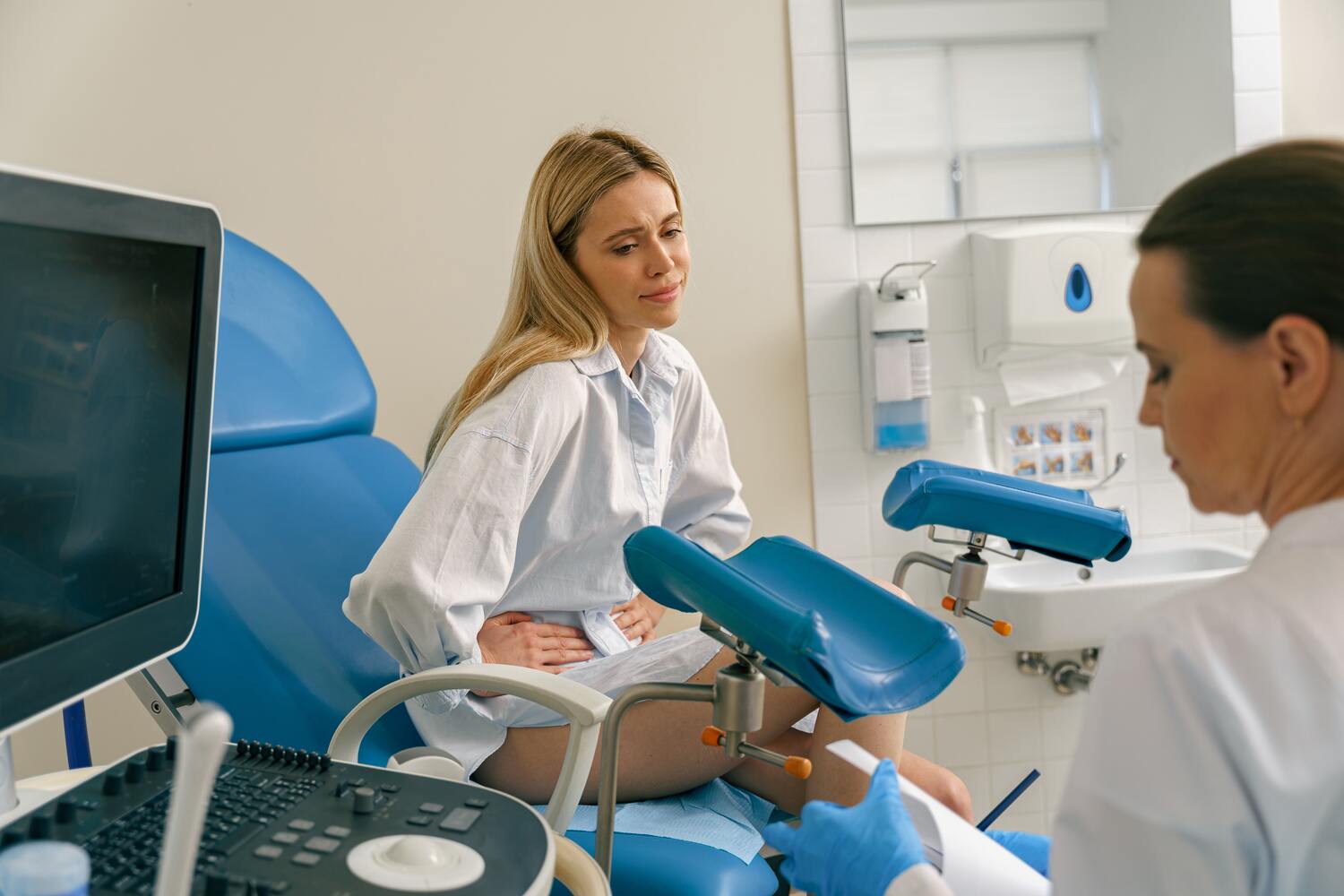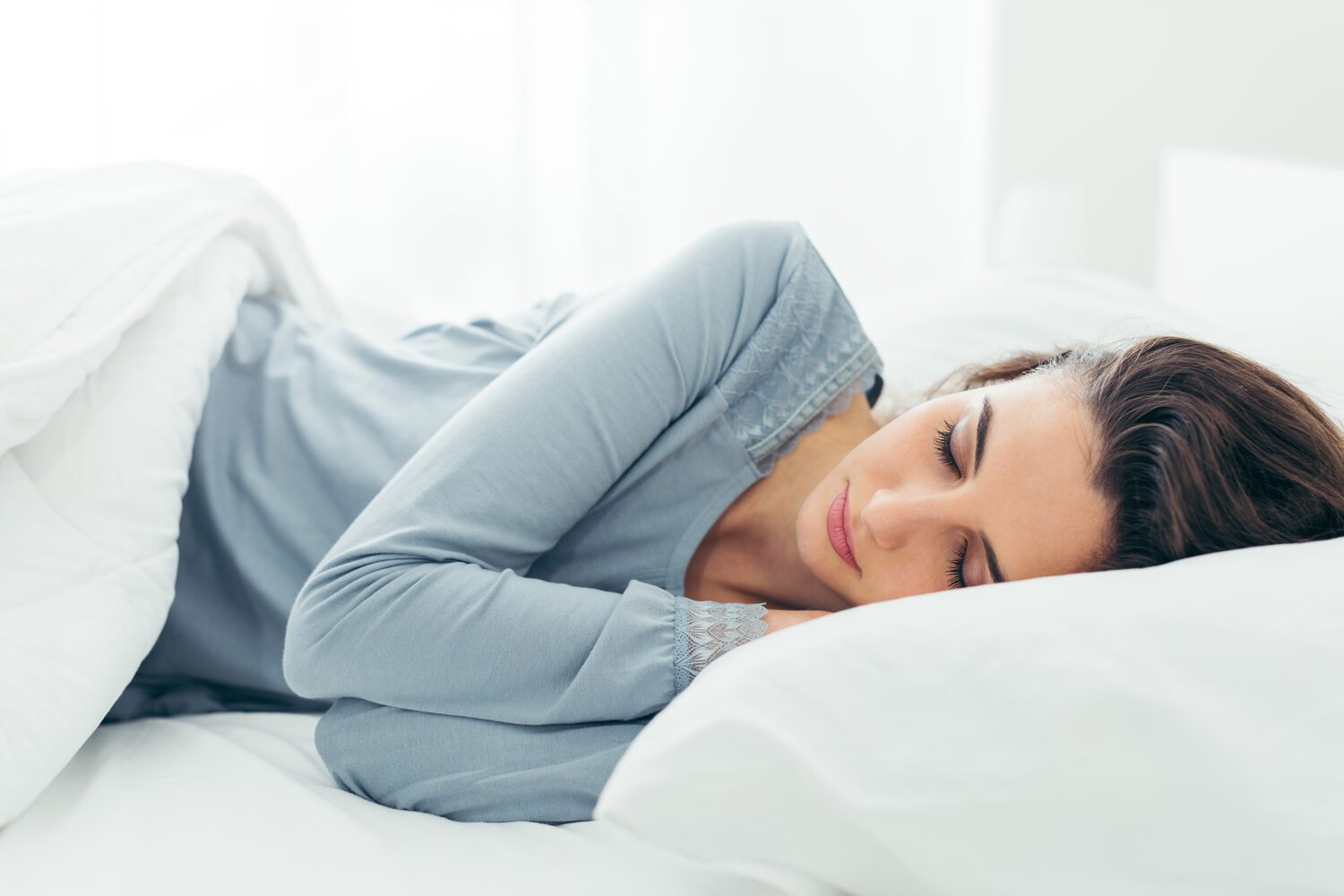
Intrauterine Insemination (IUI), also known as artificial insemination, is an infertility treatment available for couples who find it difficult to conceive. It is a process through which the sperm that are selected are placed into the uterus using a catheter. Many women may experience cramping after IUI. IUI is usually performed during the time of ovulation, which increases the chances of becoming pregnant. The eggs must be released for the sperm to meet and implant.
If infertility relates to scarce eggs or low-quality eggs or to increase the chances of successful conception, the fertility specialist may prescribe certain medications during the treatment cycle to ensure the adequate release of eggs. The reason for infertility determines the method of IUI. In this article, we shall discuss more about IUI, what happens after the procedure, and if cramping after IUI is common.
In This Article
- What is IUI?
- What To Expect After IUI Procedure?
- Causes Of Cramping After IUI
- How Long Does Cramping Last After an IUI Procedure?
- How To Manage Cramps After IUI?
- What Are The Other Symptoms That You Experience Along With Cramps After IUI?
- Facts About Cramping After IUI
- When Should You See A Doctor?
- FAQ’s
What is IUI?
IUI or intrauterine insemination is the first line of treatment for couples struggling to conceive. This process involves inserting washed and concentrated sperm into the uterus around the time of ovulation and the release of the oocyte. This process increases the chances of conception by allowing the healthy sperm better chances of swimming to and fertilizing the egg or the oocyte.
Intrauterine insemination is the most common fertility treatment that infertile or struggling couples receive. The treatment cycle may or may not involve hormones and medications to stimulate the ovaries and cause the follicles to release multiple mature eggs. This decision lies with the fertility expert who will do a thorough examination of the couple and decide the best line of treatment protocol.
IUI is less invasive and more affordable compared to advanced treatment methods such as IVF and ICSI.
What To Expect After IUI Procedure?

After an IUI procedure, life will be back to an average pace. You may experience cramping after the procedure. The cramping usually resolves on its own within a period of 48 to 72 hours. Your doctor may recommend pain medications to help with the pain. You must remember not to use any over-the-counter medications for pain or discomfort without talking to the doctor.
Doctors recommend waiting for 48 hours before resuming sexual life, mainly if tenaculum forceps are used. However, you must avoid consuming alcohol, smoking, drugs, and certain other medications since these may interfere with the treatment process, fertilization, and proper growth and development of the embryo.
Your doctor may also recommend starting or continuing pre-vitamins, including folic acid, to prepare your body for the upcoming pregnancy and to support the growth of the embryo.
Causes Of Cramping After IUI
Cramping is one of the most common after-effects of an IUI and many women who undergo IUI may experience cramping for 48 to 72 hours after this procedure while some women may not experience any pain. There are many reasons for cramping post-IUI.
1. Ovulation
The IUI is performed during ovulation, which may be the primary reason for the cramping. The release of the egg or multiple eggs during ovulation which coincides with the IUI procedure may result in cramping.
2. The Procedure
During IUI, sperm is inserted into the uterus through the catheter. Some women experience may cramping when the catheter is removed. However, some women continue to experience cramping even after removing the catheter. This may happen due to the catheter irritating the uterus during the procedure.
3. Stimulation Drugs
In most IUI protocols, doctors may recommend medications and hormones to ensure the production and release of multiple mature eggs to increase the chances of successful fertilization and conception. This may also cause conception.
4. Prostaglandin
The cramping could also be the effect of the prostaglandin content of the sperm.
5. Increased Uterine Activity
Studies have been conducted to check the reactivity of the uterus for the IUI. It was observed that there were significant changes in menstruation before and after the insemination. In fact, uterine activity improves as quickly as three minutes after the procedure.
After a successful IUI, when the implantation occurs, many women may experience severe cramping followed by mild spotting. If the IUI is not successful, women may experience menstrual cramping.
While cramping after an IUI is common, if the pain and discomfort are bothering you too much or you see more bleeding than normal, you may need to consult your doctor immediately,
How Long Does Cramping Last After an IUI Procedure?
After an IUI procedure, you may experience cramping for one to three days. You can also expect mild spotting which may happen due to implantation and catheter irritation. If your spotting or cramps do not subside within three days, you may need to see your doctor
How To Manage Cramps After IUI?

Cramping after an IUI procedure can be quite uncomfortable but is usually manageable. Here are a few things you can do to manage the pain and discomfort.
- Taking adequate rest and sleep is the basic and primary remedy to cope with cramps.
- Make sure you keep yourself comfortable with clothing. Wearing tight or uncomfortable dresses may give you more stress and discomfort.
- If the pain is unbearable, check with your doctor and get the Over-the-counter (OTC) medicines.
- Warm compression on the belly could be really helpful in easing the pain. I
- Avoid the use of hot bathtubs or saunas to ease the pain, these may interfere with conception and may also affect fetal development.
What Are The Other Symptoms That You Experience Along With Cramps After IUI?
After an IUI, some women may experience additional symptoms, including vaginal or implantation spotting, when the egg gets implanted in the uterus. However, most of the women do not experience any other symptoms. The other symptoms of implantation, which are common in pregnancy, can pop up any time after the egg has been successfully fertilized.
Facts About Cramping After IUI
Now that we know why we experience cramping after IUI let us consolidate and discuss the facts about cramping after the IUI procedure.
- Mild cramping after IUI is normal and is easily manageable at home.
- If you experience severe cramping, seek medical attention immediately.
- Cramping does not indicate successful implantation.
- You may experience implantation cramping or spotting six days after the procedure.
- Sometimes, you may not experience any cramping or spotting but still get pregnant.
- If you notice a fever or any other abnormal symptom along with cramping, it is advisable to seek immediate medical attention.
When Should You See A Doctor?

After the procedure is completed, ensure that you contact your doctor for any sort of discomfort that you experience, especially with any of the following symptoms, as they may indicate the existence of infection.
- Severe Vaginal Bleeding
- Abnormal discharge
- Fever
- Abdominal Pain
Cramping after IUI is a common phenomenon, and it usually subsides on its own without any treatment. Patience and the tendency to wait for a few days before you can confirm pregnancy is very challenging and could be stressful. While cramping may indicate successful IUI, it might indicate any other condition as well. It is essential to consider any other symptoms that may accompany cramping to understand the reason for cramping. A blood test could probably indicate a successful pregnancy. If you notice any other unusual symptoms, it is better to check with your doctor.
FAQ’s
1. Can Fertilized Eggs Cause Cramping?
Yes, fertilized eggs can cause cramping. When the eggs fertilize and attach to the lining of the uterus, they implant and the whole process is known as implantation. When this happens, you can expect light cramping and spotting.
2. Does Cramping Mean Fertilization?
Cramping does not always mean fertilization. It may occur for several reasons such as ovulation or upcoming menstruation (PMS). Experiencing cramping after IUI may indicate a successful implantation but this is not true in all cases.
3. Do Implantation Cramps Feel Like Gas?
Implantation cramps may or may not feel like gas. The implantation cramps will feel very similar to that of menstrual cramps. They will be slightly milder with the pricking pain that is usually dull or achy.
4. How Successful is IUI on The First Try?
The success of an IUI depends on several factors, including the underlying infertility causes, the age of the woman, LH concentration, thickness of the endometrium, number of follicles, and its size. Studies have been conducted and prove that the success rate is higher in women whose age is below 25 rather than in women who are over 35 years of age.
5. How Long Does The IUI Sperm Take to Reach The Egg?
The exact time is not determinable. It depends on the existence of the eggs and the pace at which the sperm travels to the egg. Fertilization can occur within a few hours or days after the IUI procedure is complete.
